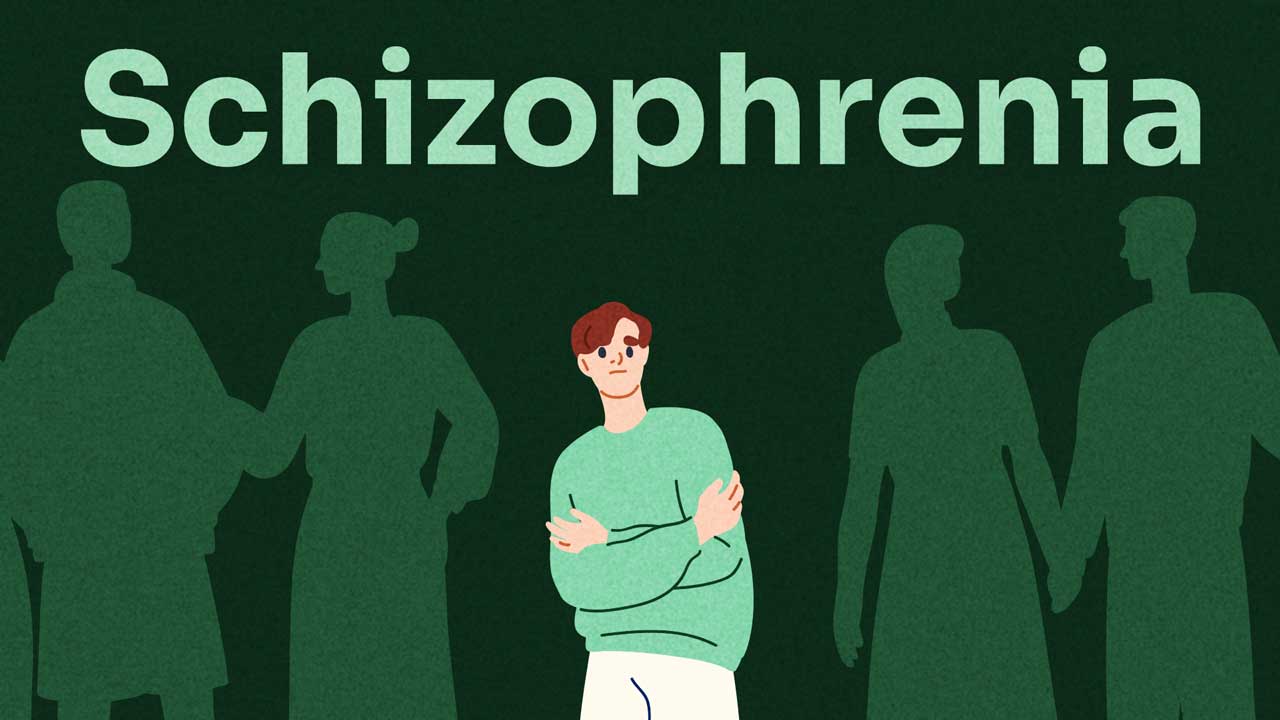Chronic schizophrenia is a severe and persistent mental disorder characterized by distorted thinking, emotions, and behavior. It affects about 1% of the population, usually emerging in late adolescence or early adulthood.
The disorder often leads to disruptions in personal and occupational life, difficulty distinguishing between what is real and what is not, and a lack of insight into the condition. The symptoms may include hallucinations, delusions, disorganized thinking, and reduced motivation.
Treatment usually involves a combination of antipsychotic medication, psychotherapy, and support services to manage the symptoms and improve the individual’s quality of life. Early recognition and intervention are crucial in managing chronic schizophrenia and preventing long-term complications. Understanding the nature of this condition is essential for providing support and empathy to those struggling with it and their families.
Understanding Chronic Schizophrenia
Chronic schizophrenia is a severe mental disorder characterized by disordered thinking, hallucinations, delusions, and impaired social functioning. It is a chronic condition that requires ongoing treatment and management. Individuals with chronic schizophrenia often experience persistent symptoms that significantly impact their daily lives.
Symptoms of chronic schizophrenia may include auditory hallucinations, paranoid delusions, disorganized thinking, and reduced emotional expression. These symptoms can lead to difficulties in maintaining relationships, holding employment, and managing self-care. The condition typically develops in early adulthood and can profoundly impact an individual’s quality of life.
Characteristics of chronic schizophrenia include long-term persistence of symptoms, frequent hospitalization, and challenges in adhering to treatment. This condition requires a comprehensive approach that combines medication, therapy, and support services to help individuals manage their symptoms and improve their overall well-being.

Credit: www.ausmed.com
Causes And Risk Factors
Genetics and family history: Chronic schizophrenia is often linked to genetic predisposition. Individuals with a family history of the condition are at a higher risk of developing the disorder. Certain genetic variations or mutations may contribute to the development of chronic schizophrenia.
Environmental factors: Environmental factors such as prenatal complications, exposure to toxins, or traumatic life events can also play a role in the onset of chronic schizophrenia. Stressful environments or experiences may exacerbate symptoms in individuals with a genetic predisposition.
Neurodevelopmental factors: Abnormalities in brain development and structure are associated with chronic schizophrenia. Disruptions in the early stages of brain development, particularly during gestation or early childhood, have been linked to an increased susceptibility to the disorder.
Diagnosis And Treatment
Chronic schizophrenia is diagnosed through a set of specific criteria, including hallucinations, delusions, disorganized speech, and negative symptoms. These symptoms must persist for at least six months, with significant social or occupational dysfunction. The diagnosis also involves ruling out other mental health disorders or medical conditions. Treatment for chronic schizophrenia typically involves a combination of medications and therapy.
Antipsychotic medications are commonly prescribed to manage symptoms and prevent relapses. Psychotherapy, such as cognitive-behavioral or family therapy, can help individuals manage stress and enhance their coping skills. Additionally, supportive services and community-based programs play a crucial role in providing ongoing care and support for individuals with chronic schizophrenia.
Living With Chronic Schizophrenia
Chronic schizophrenia is a severe and persistent mental health condition that can significantly impact an individual’s daily life. Living with chronic schizophrenia requires a multifaceted approach that often includes medication, therapy, and lifestyle adjustments.
Coping mechanisms, such as practicing mindfulness, adhering to a structured routine, and engaging in creative outlets, can be essential in managing symptoms. Additionally, support systems and resources are crucial in providing individuals with the necessary assistance and guidance.
This can include family support, peer support groups, community mental health services, and access to psychiatric professionals. By incorporating these elements into daily life, individuals can work towards managing the challenges associated with chronic schizophrenia and improving their overall well-being.
Long-term Outlook
Schizophrenia is a complex mental disorder characterized by persistent symptoms that can significantly impact a person’s daily life. Managing symptoms of schizophrenia is crucial for improving the long-term outlook for individuals affected by this condition.
Advancements in treatment have provided new options for managing symptoms and enhancing the quality of life for those living with schizophrenia. With the proper support and medical care, individuals can achieve stability and lead fulfilling lives despite the challenges associated with this condition.
Impact On Daily Functioning
Schizophrenia can significantly impact daily functioning, leading to social and occupational challenges. Individuals with schizophrenia often struggle with maintaining relationships, participating in social activities, and holding down jobs. The strategies for daily functioning include regular medication, therapy, maintaining a routine, and having a solid support system.
Additionally, ensuring access to community support services and vocational rehabilitation can assist individuals in managing their symptoms and maintaining a functional lifestyle.
Conclusion
Schizophrenia is a complex mental disorder that requires comprehensive treatment and support. Understanding its symptoms, causes, and available interventions is crucial in providing effective care for individuals with this condition. By raising awareness and promoting understanding, we can work towards creating a more inclusive and supportive environment for those living with schizophrenia
